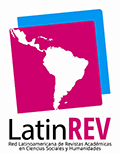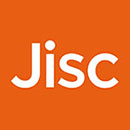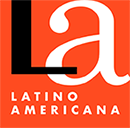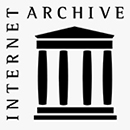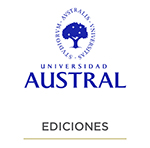The Right to Algorithmic Transparency as an Ethical Standard in a Liberal Democracy
Abstract
Algorithms have transformed people’s lives and their relationship with the State. States are increasingly turning to this technology to fulfill their functions. This article argues that the right to algorithmic transparency is the ethical standard that States must adhere to when using algorithms within a liberal democracy.
To defend this claim, first, I address the topic of liberal democracy and what criteria constitute a democratic government that promotes individual autonomy. Second, I explain the right to access information as a pillar of liberal democracy. Third, I develop the right to algorithmic transparency as a derivative right of access to information that individuals have against the State, thus concretizing the autonomy sought by individuals.
Downloads
References
Ananny, M. y Crawford, K. (2018). Seeing without knowing: Limitations of the transparency ideal and its application to algorithmic accountability. New Media & Society, 20(3), 973-989. https://doi.org/10.1177/1461444816676645.
Bobbio, N. (2009). Teoría general de la política. Editorial Trotta.
Bodenheimer, E. (1994). Teoría del Derecho. Fundo de Cultura Económica.
Burrell, J. (15 de septiembre de 2015). How the Machine 'Thinks:' Understanding Opacity in Machine Learning Algorithms. Data & Society Research Institute; University of California. http://dx.doi.org/10.2139/ssrn.2660674.
Castro, K. (2008). El acceso a la información pública: Apuntes sobre su desarrollo en el Perú a la luz de la jurisprudencia del Tribunal Constitucional. Pontificia Universidad Católica del Perú.
Dahl, R. (2022). La democracia. Ariel.
Daly, A., Hagendorff, T., Li, H., Mann, M., Vidushi, M., Wagner, B., Wei Wang, W. y Witteborn, S. (2019). Artificial Intelligence, Governance and Ethics: Global Perspectives. The Chinese University of Hong Kong, Faculty of Law, Research Paper No. 2019-15. http://dx.doi.org/10.2139/ssrn.3414805.
De Laat, P. B. (2018). Algorithmic Decision-Making Based on Machine Learning from Big Data: Can Transparency Restore Accountability? Philosophy & Technology, 31, 525-541. https://doi.org/10.1007/s13347-017-0293-z.
Diakopoulos, N. (2015). Algorithmic Accountability. Digital Journalism, 3(3), 398-415. https://doi.org/10.1080/21670811.2014.976411.
Diakopoulos, N. y Koliska, M. (2016). Algorithmic Transparency in the News Media. Digital Journalism, 5(7). https://doi.org/10.1080/21670811.2016.1208053.
Garrido, R., Lapostol, P. y Hermosilla, M. P. (2021). Transparencia Algorítmica en el sector público. Consejo para la Transparencia y GobLab UAI. https://goblab.uai.cl/wp-content/uploads/2021/11/ESTUDIO-TRANSPARENCIA-ALGORITMICA-EN-EL-SECTOR-PUBLICO-GOBLAB-vf.pdf.
Hayek, F. A. (2014). Los fundamentos de la libertad. Unión Editorial.
Hohfeld, W. N. (1917). Fundamental Legal Conceptions as Applied in Judicial Reasoning. The Yale Law Journal, 26(8), 710-770. https://doi.org/10.2307/786270.
Kant, I. (2018). Hacia la paz perpetua. Ediciones Alamanda.
Katzenbach, C. y Ulbricht, L. (2019). Algorithmic governance. Internet Policy Review, 8(4). https://doi.org/10.14763/2019.4.1424.
Kelsen, H. (2001). Teoría Pura del Derecho. Universidad Autónoma de México.
Kemper, J. y Kolkman, D. (2018). Transparent to whom? No algorithmic accountability without a critical audience. Information, Communication & Society, 22(14). https://doi.org/10.1080/1369118X.2018.1477967.
Lepri, B., Oliver, N. y Pentland, A. (2021). Ethical machines: The human-centric use of artificial intelligence. iScience, 24(3), 102249. https://doi.org/10.1016/j.isci.2021.102249.
Mill, S. (2011). Ensayos sobre la libertad. Ediciones Brontes.
Mittelstadt, B. D., Allo, P., Taddeo, M., Wachter, S. y Floridi, L. (2016). The Ethics of Algorithms: Mapping the Debate. Big Data & Society, 3(2). https://doi.org/10.1177/2053951716679679.
Morón, J. C. (2021). Comentarios a la Ley del Procedimiento Administrativo General (16a ed., Tomo I). Gaceta Jurídica.
Nino, C. S. (2017). Ocho lecciones sobre ética y Derecho. Para pensar la democracia. Siglo XXI.
Organización de los Estados Americanos. (2007). Estudio especial sobre el derecho de acceso a la información. Relatoría Especial para la Libertad de Expresión, Comisión Interamericana de Derechos Humanos. https://conahcyt.mx/cibiogem/images/cibiogem/normatividad/estandares_dh/docs_estandares_dh/CIDH_Estudio_Especial_sobre_el_derecho_de_Acceso_a_la_Informacion_2007.pdf
Paz Hermosilla, M. y Lapostol, P. (2021). The limits of algorithmic transparency. En TIC Governo Eletrônico. Pesquisa sobre o uso das Tecnologias de Informação e Comunicação no setor público brasileiro. 2021. CETIC.BR|NIC.BR. pp. 289-295. https://www.cgi.br/media/docs/publicacoes/2/20220725170710/tic_governo_eletronico_2021_livro_eletronico.pdf.
Rawls, J. (2019). El liberalismo político. Crítica.
Raz, J. (1986). The Morality of Freedom. Oxford University Press.
Raz, J. (2001). La ética en el ámbito público. Gedisa.
Roa Avella, M. P., Sanabria-Moyano, J. E. y Dinas-Hurtado, K. (2022). Uso del algoritmo compas en el proceso penal y los riesgos a los derechos humanos. Revista Brasileira de Direito Processual Penal, 8(1), 275-310. https://doi.org/10.22197/rbdpp.v8i1.615.
Ross, A. (2018). ¿Por qué democracia? Ediciones Olejnik.
Sartori, G. (2014). ¿Qué es la democracia? Taurus.
Shapiro, S. J. (2014). Legalidad. Marcial Pons.
Squella, A. (2020). Democracia. ¿Crisis, decadencia o colapso? Ediciones Valparaíso.
Wieringa, M. (2020). What to account for when accounting for algorithms: a systematic literature review on algorithmic accountability. En Proceedings of the 2020 Conference on Fairness, Accountability, and Transparency (FAT* '20). Association for Computing Machinery, Nueva York, Estados Unidos. https://doi.org/10.1145/3351095.3372833.
Zerilli, J., Knott, A., Maclaurin, J. y Gavaghan, C. (2019). Transparency in Algorithmic and Human Decision-Making: Is There a Double Standard? Philosophy & Technology, 32, 661-683 https://doi.org/10.1007/s13347-018-0330-6.
Copyright (c) 2024 Wilfredo Concha Camacho

This work is licensed under a Creative Commons Attribution-NonCommercial-NoDerivatives 4.0 International License.
This license allows the copy, distribution, exhibition and representation of the work provided authorship is acknowledged and the work is properly quoted. Commercial use of the original work or the generation of derived works are not allowed.
The authors hereby guarantee the right to the first publication of the work to the Revista Jurídica Austral.













